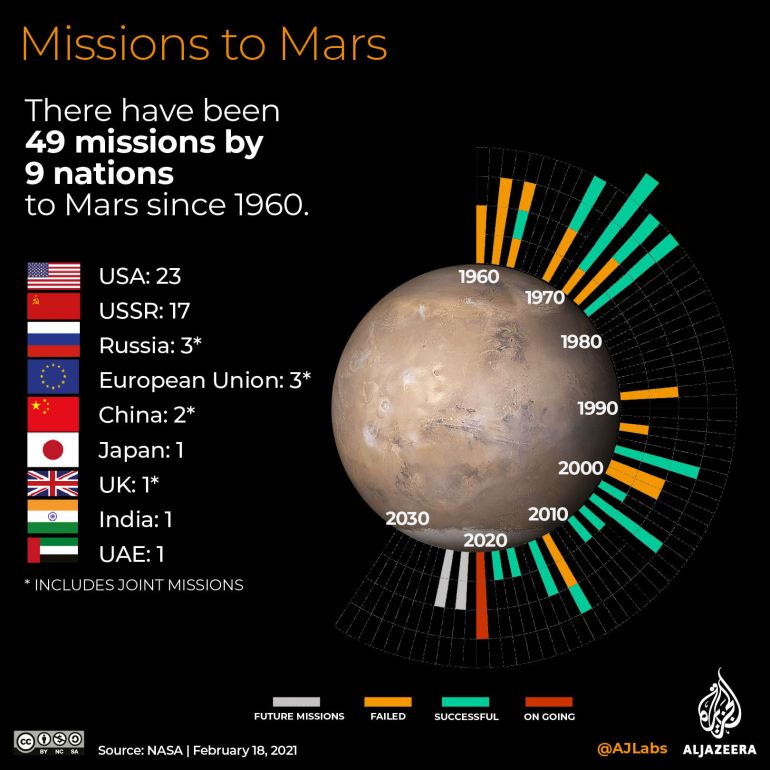NASA says Perseverance videos provide a ‘treasure trove’ of details about the alien world.
NASA unveiled the first video and coloured images of the Perseverance landing on Mars on Monday, accompanied by the first sound recording of the Martian surface.
The video, played at a news conference, showed the spacecraft blasting away red dirt as it landed on the surface of Mars on February 18, following a landing sequence that NASA staff described as going as planned – including some small amount of rocking back and forth and engine throttling.
The rover travelled through space for almost seven months, covering 472 million km (293 million miles) before landing safely on Mars at 19,000 km/h (12,000 mph).
Al Chen, systems engineer in the Entry, Descent, and Landing Systems and Advanced Technologies group at NASA’s Jet Propulsion Laboratory, said “we could spend all day looking” at the images.
Chen said the data coming from Mars provided a “rich treasure trove” of images and sounds from the red planet’s surface.
Viewers were encouraged to watch the videos at slowed speeds to observe these details.
Sounds recorded by the rover showcased the desolate soundscape of the planet, featuring a strong gust of Martian wind and little else.
If you are feeling overwhelmed by the amount of visual content @NASAPersevere has captured, take a breath and enjoy what it would sound like to sit on the surface of Mars with the rover: pic.twitter.com/ZclPsAVIMd
— NASA (@NASA) February 22, 2021
The Perseverance is NASA’s fifth Mars science rover, and is most the advanced astrobiology laboratory ever sent to an alien planet. There have been 49 missions to Mars since 1960 by nine nations.
The rover and the accompanying programme cost $2.7bn and took two years to develop.
NASA hopes to find possible evidence of rudimentary life, including signs of microbes, in ancient sediments taken from Martian rock by Perseverance.

The specimens would be the first collected by humans from an alien planet.
NASA has planned two further trips to Mars to retrieve the specimens and return them to Earth. Those future trips are planned within the next decade.
Justin Maki, a scientist with the JPL who has worked on all five Mars rover missions, said at the news conference that he knew 2020 was a difficult year for the world and that he hoped Perseverance’s images, which are publicly available, would help ease the pain.
“We are so happy and proud … we hope these images will help brighten people’s day.”






